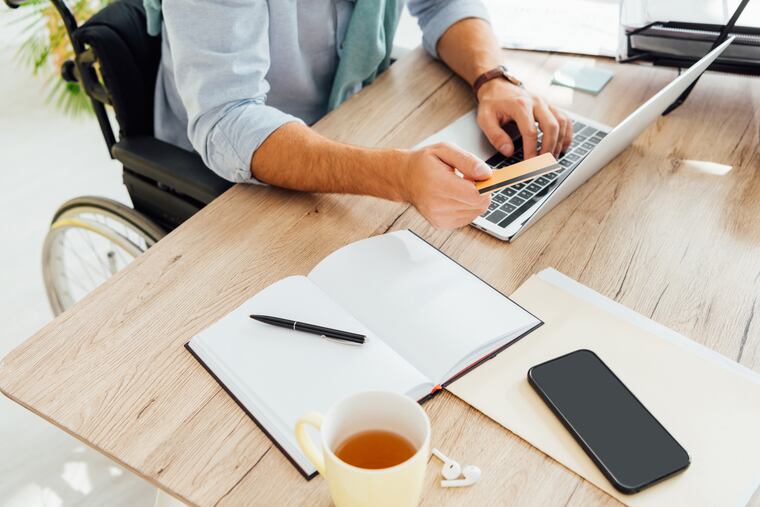Coronavirus made accessibility a priority. It should stay that way when the pandemic ends. | Opinion
I would be pleased to see so much more accessibility — if I weren't so angry.

When Pennsylvania Gov. Tom Wolf started issuing stay-at-home orders for counties in the state, I was scrolling Twitter for updates and saw a notice from a company where I had previously applied. They detailed how they were making work from home accommodations available to all employees as self-isolation and quarantine measures became more widespread.
I was flummoxed.
When I applied to a position with their company, interviewers said it was impossible for me to work from home, despite my needing to from time to time as a disabled person. But now that a pandemic has forced nondisabled workers to isolate, accessibility is everywhere.
For fellow disabled people, my story almost sounds like a right of passage. Many like me are not hired because employers aren’t equipped — or don’t want — to make their business accessible. We are forced out of educational institutions, barred from churches and businesses because accommodations haven’t been made. As we are all forced to reimagine work and community from home, many employees telework, students attend class from home, and many churches — which hadn’t previously — livestream services.
I would be pleased with these actions if I weren’t so pissed.
Disabled people have fought for accessibility and inclusion in the workforce and education for decades. We are currently celebrating the 30th anniversary of the Americans with Disabilities Act. Yet it took a global pandemic to make these changes happen on the scale we have demanded.
Imagine having been denied employment and education on the basis of your disability, only to watch companies and schools be heralded for the exact accessibility you were previously denied. It’s infuriating.
Nondisabled people are now experiencing a taste of disability for themselves. Their daily lives and needs are now in many ways out of reach, and within hours, they were forced to confront a “new normal.” They have to plan outings more carefully to maintain their health, pay more for items they need, and deal with the toll isolation can take on mental health.
But I doubt that these changes, and national consciousness, will last. American memories are short, and the pandemic has made the narrative that “Americans come together in times of crisis” into a wry joke. People have hoarded supplies, price-gouged necessary sanitary products, and ignored stay-at-home orders despite the looming specter of horrifying death by COVID-19 — not to mention the consensus among some that the disabled and elderly should be sacrificed to save the economy. This is the exact economy comprised of assets and corporations that are out of reach to disabled people, and who often skirt accessibility laws to exclude us.
As we celebrate the ADA, a strange paradox has emerged in regard to COVID-19. While white-collar job and educational accessibility are everywhere, disability rights and the activists who helped make them possible are under enormous threat. Relief bills and policies effectively write disabled people out entirely. The Department of Education wants to undermine special education requirements by exempting schools from them. Relief funds are minimal, even though more than half of those in long-term poverty live with disabilities. Hospitals have received guidelines to deny, or ration, care to those they deem less likely to survive. A years-old New York COVID-19 policy repurposing personal ventilators disabled people come to the hospital with for use on someone more abled has come under fire in disability communities.
Those are the most serious examples, but because nondisabled people in self-isolation are now overwhelming many forms of assistance, the daily lives of disabled people have become less accessible. Grocery delivery is almost impossible, pharmacy runs are more dangerous because people aren’t taking the pandemic seriously, and medicines for some chronic illnesses are unavailable because of fake news that it definitively treats the virus.
Perhaps the most shocking aspect of COVID-19 hasn’t been the accessibility now enjoyed by nondisabled people, but how disabled people have been pushed out the services we need to survive
— the same services we were previously called lazy and incompetent for using. While life has become more inclusive for everyone else, life itself for disabled people hangs in the balance.
Imani Barbarin is a disability activist who writes at CrutchesAndSpice.com and communications director for a disability rights nonprofit in Pennsylvania.